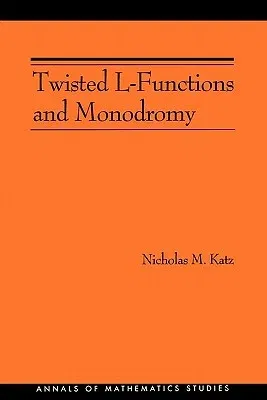Nicholas M Katz
(Author)Twisted L-Functions and Monodromy. (Am-150), Volume 150Paperback, 24 February 2002

Qty
1
Turbo
Ships in 2 - 3 days
In Stock
Free Delivery
Cash on Delivery
15 Days
Free Returns
Secure Checkout

Part of Series
Annals of Mathematics Studies
Part of Series
Annals of Mathematics Studies (Paperback)
Print Length
264 pages
Language
English
Publisher
Princeton University Press
Date Published
24 Feb 2002
ISBN-10
069109151X
ISBN-13
9780691091518
Description
Product Details
Author:
Book Format:
Paperback
Country of Origin:
US
Date Published:
24 February 2002
Dimensions:
23.39 x
15.6 x
1.32 cm
ISBN-10:
069109151X
ISBN-13:
9780691091518
Language:
English
Location:
Princeton
Pages:
264
Publisher:
Weight:
349.27 gm